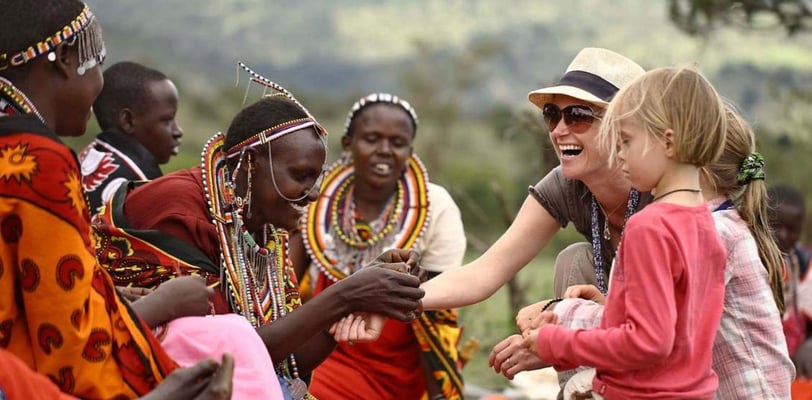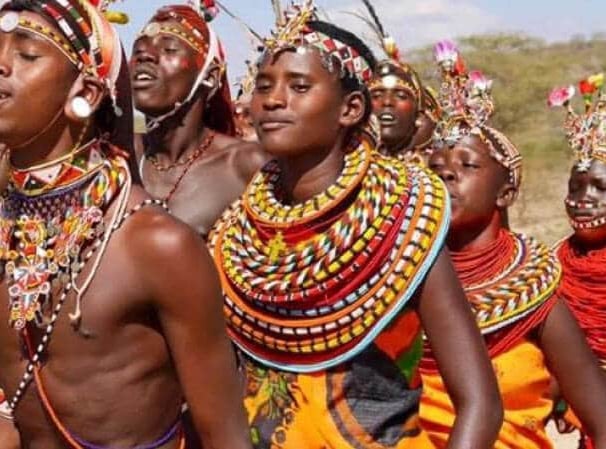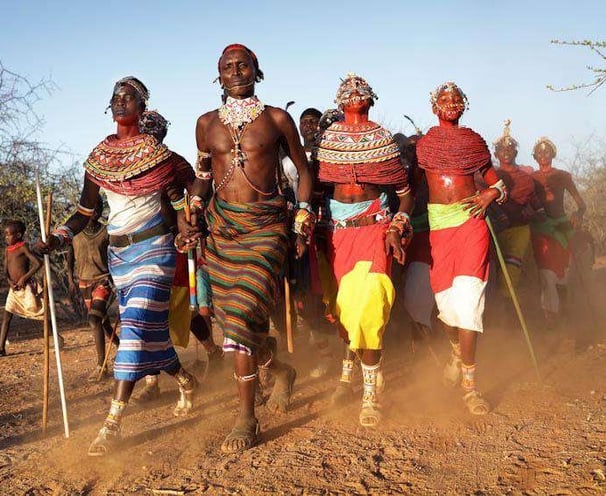The Luo Tribe in Kenya
Discover the Rich Cultural Tapestry of the Luo Tribe: Cultural Safaris in Kenya
KENYA CULTURE


Kenya, a land of diverse cultures and breathtaking landscapes, is home to the Luo tribe—a community known for their vibrant traditions and deep-rooted cultural heritage. In this blog, we embark on a captivating cultural safari to explore the traditions, customs, and enchanting beauty of the Luo people in Kenya.
Unveiling the Luo Tribe:
The Luo tribe is one of the major ethnic groups in Kenya, primarily residing in the western part of the country around Lake Victoria. With a population of over four million, the Luo people have a rich history, distinct language, and captivating cultural practices that have shaped their identity.
Cultural Significance and Traditions: The Luo tribe is renowned for its deep appreciation of music, dance, storytelling, and oral traditions. Music plays a central role in Luo culture, with traditional instruments such as the nyatiti (stringed instrument) and the orutu (one-stringed fiddle) producing enchanting melodies. Traditional dances like the dudu, ramogi, and ohangla showcase the tribe's energetic and rhythmic expressions.
Fishing Traditions and Lake Life: As a community living around the shores of Lake Victoria, fishing is an integral part of Luo culture and livelihoods. Engaging in a cultural safari provides an opportunity to witness the fishing techniques, explore vibrant fishing markets, and even participate in traditional fishing activities, allowing for an immersive experience into the daily lives of the Luo people.
Traditional Attire and Adornments: The Luo people are known for their vibrant and stylish attire. Women often wear brightly colored dresses known as dera, while men adorn themselves with intricately designed woven hats and necklaces. Traditional ceremonies and festivals offer glimpses of the exquisite Luo fashion and provide opportunities to witness the community's sense of style.
Cultural Festivals and Ceremonies: Luo cultural festivals are vibrant and captivating celebrations. The most renowned is the annual Luo Festival, where music, dance, and traditional performances take center stage. Other ceremonies such as weddings, initiation rituals, and clan gatherings provide insights into Luo customs, beliefs, and social structure.
Exploring Luo Historical Sites: A cultural safari can also include visits to historical sites significant to the Luo tribe. The Thimlich Ohinga archaeological site, an ancient dry-stone enclosure, showcases the tribe's ancient settlement patterns and architectural skills. Other notable sites include the Kit Mikayi rock formation and the Nyakalaga rock art site, where ancient rock paintings depict the rich cultural history of the Luo people.
Culinary Delights and Local Cuisine: Luo cuisine is a culinary delight, influenced by the abundance of Lake Victoria and the fertile lands of western Kenya. Enjoy dishes such as fish stew (omena), smoked fish (mbuta), ugali (a staple cornmeal dish), and traditional vegetable dishes prepared with ingredients sourced from the region. Exploring local food markets and engaging in cooking demonstrations offer a taste of Luo gastronomy.
Preserving Luo Culture: Efforts are being made to preserve and promote Luo culture through community initiatives and cultural tourism. Engaging with local tour operators or community-based organizations ensures that your cultural safari supports sustainable development and contributes positively to the well-being of the Luo community.
Conclusion: Embarking on a cultural safari to explore the Luo tribe in Kenya is a journey of discovery into a vibrant world of music, dance, rich traditions, and warm hospitality. The Luo people's cultural heritage, intertwined with the captivating landscapes of western Kenya, creates an extraordinary tapestry that reveals the heart and soul of this remarkable community. Prepare for an unforgettable adventure as you immerse yourself in the enchanting Luo cultural safaris of Kenya.
Note: When participating in cultural safaris or visiting cultural sites, it's important to respect local customs, traditions, and sacred spaces. Engage with licensed tour operators or community-based organizations that prioritize ethical interactions and contribute positively to the well-being of the Luo community.




